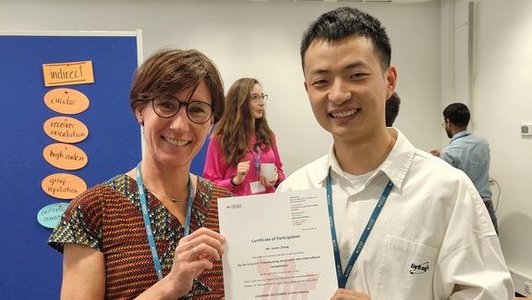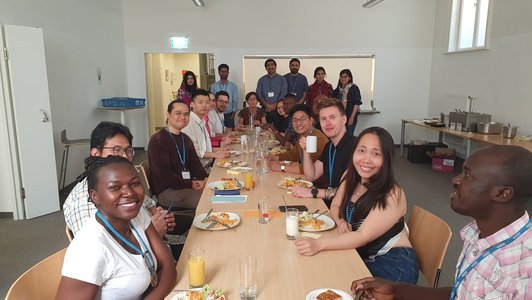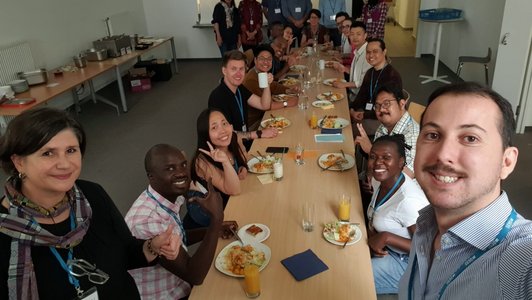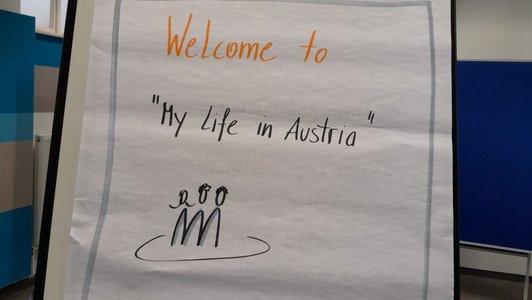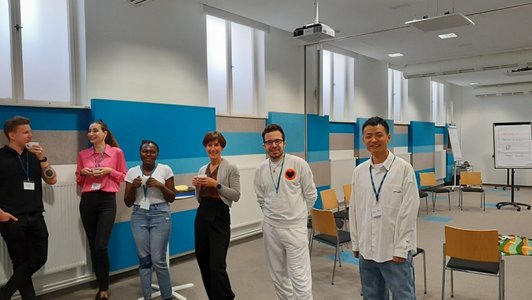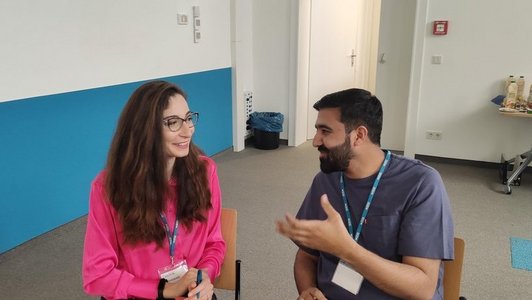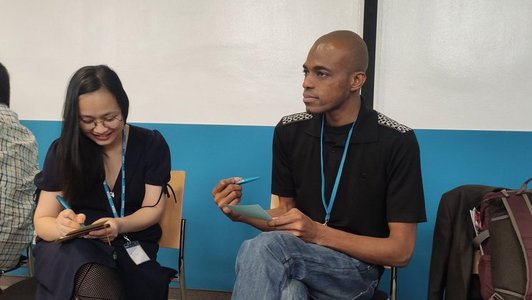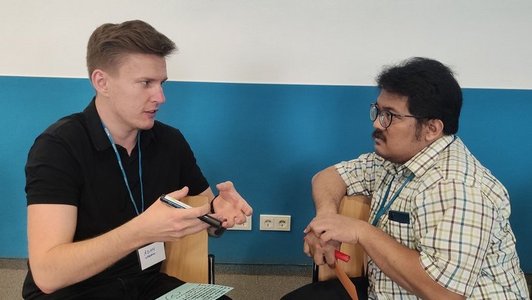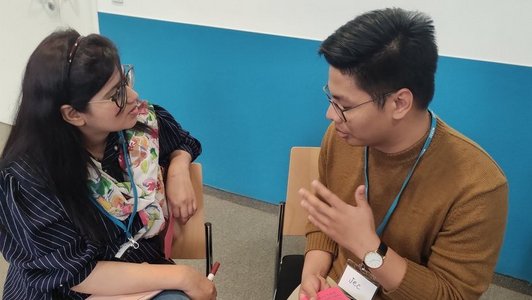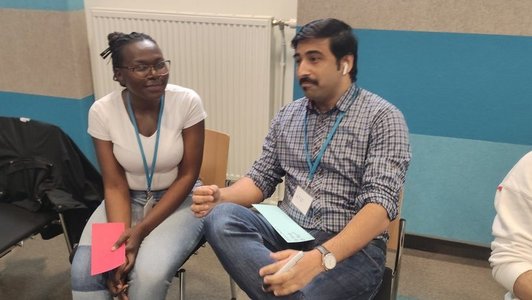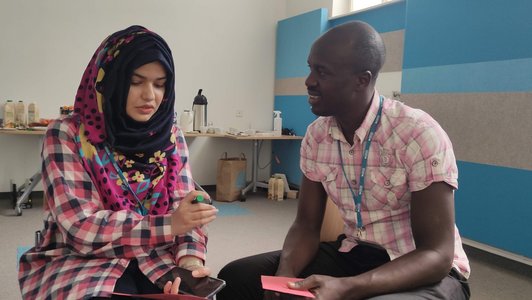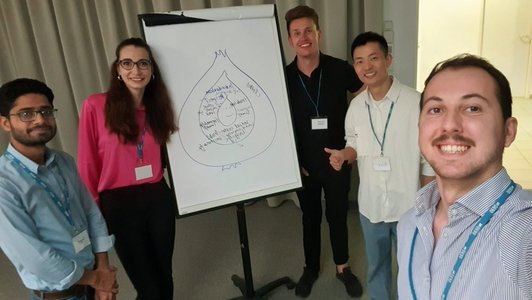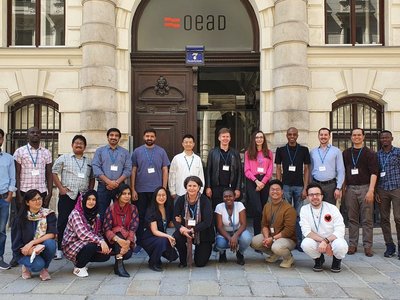

Margret Steixner, a professional intercultural trainer, (https://intercultural-perspectives.com/) who has done several trainings for OeAD scholars in the past offered different methods to help students reflect on and exchange their experiences with culture. Some participants were able to gain new information on traditions and norms and now have a found respect for other cultures. It also reassured them that some negative experiences are one-time events and things will get better. By the end, many students have obtained new tools to help them integrate into a new society without feeling awkward and resentful. The overall takeaway was to stay open-minded and treat each experience individually. As a testimony to the quality of the course, students were left wanting for more, as one day is insufficient to discuss all cultural aspects.
So, what kind of tips would scholars give to other students interested in studying in Austria? One participant noted: “It is less than two months so far since I arrived here, but I have found the people very helpful; they are caring and respectful. The transport system is best of the best, the environment is peaceful here. So I would recommend Austria (Vienna) for studies to my friends.” Others suggested to stay curious and get out of one’s comfort zone, to not be afraid to ask questions, to stay engaged and be willing to adapt and to respect Austrian traditions. Another crucial tip from one student is that “it will really benefit you to have a German of B1 because you will need to use German every day. Also, no matter what your language skills are, it is important to get out there and participate in campus life.” Most importantly, however, students should participate in clubs and excursions and of course: “Don’t be afraid, get out of your comfort zone and participate in OeAD events!”
Junlai Zhang, a participant from China who has received the Ernst Mach Grant for 9 months, greatly enjoyed the workshop:
I really liked the intercultural reflection workshop. Coming from Jiangxi University of Finance and Economics in my home country of Mainland China, after 8 months in Austria, there is certainly much to reflect upon as my stay here has presented me with a thrilling but dizzying array of new situations and challenges.
During the workshop, the facilitator used meaningful metaphors to help us pinpoint areas of intercultural difference which can enhance our understanding. Some of the metaphors were an onion, glue, water and the effect of sunglasses. This approach to discuss inter-cultural experience was really fresh and original to me. We talked over the role that our home culture, as well as any culture, plays in our lives. Culture is like glue, holding a group together with common values and interests. At the same time, knowing a culture through experience is akin to diving into the water, a different water than we have known. Only through this diving can we truly know the culture.
Living abroad, for example in Austria, is how we can really begin to know Austrian culture. Also, culture is like an onion, as it has many layers - from the outer layers that are easier to see, to the inner hidden layers that take time to discover. Therefore, it takes time to know and realize different cultures. In the first layer, which is easy to observe as an outsider, there are language, foods, house style, clothes, traditions, rituals, and gestures. Deeper inside the onion are things like expectations, values, how to show respect and status. Values that I observed while living in Austria for example include personal freedom, individualism, self-discipline, equity and privacy.
Culture can be easy to ignore, as though we are wearing sunglasses. To experience culture, we need to take the sunglasses off. My experience in Austria has enriched my life immensely. It was the first time I could interact with international peers over a long period, and we learned much from each other. Also, I experienced the considerable cultural diversity that exists among Austrians such as Austrians who are 1st or 2nd generation immigrants. The diversity in this workshop of scholars studying here represented many countries, and in a sense mirrored the diversity that can be seen in Vienna. Participating in this workshop definitely added to my toolbox of cultural understanding and was a meaningful forum to exchange ideas about culture among other scholars.

